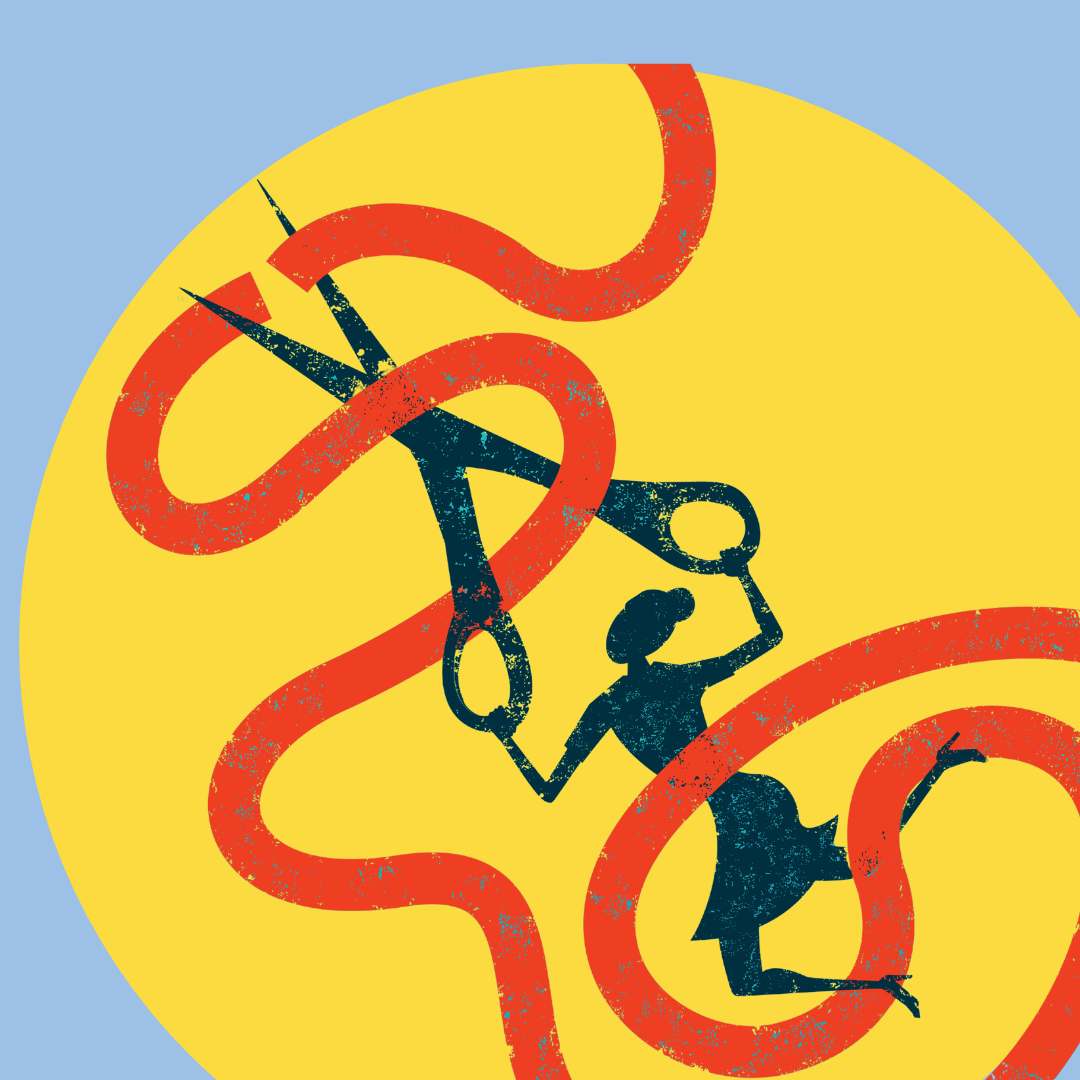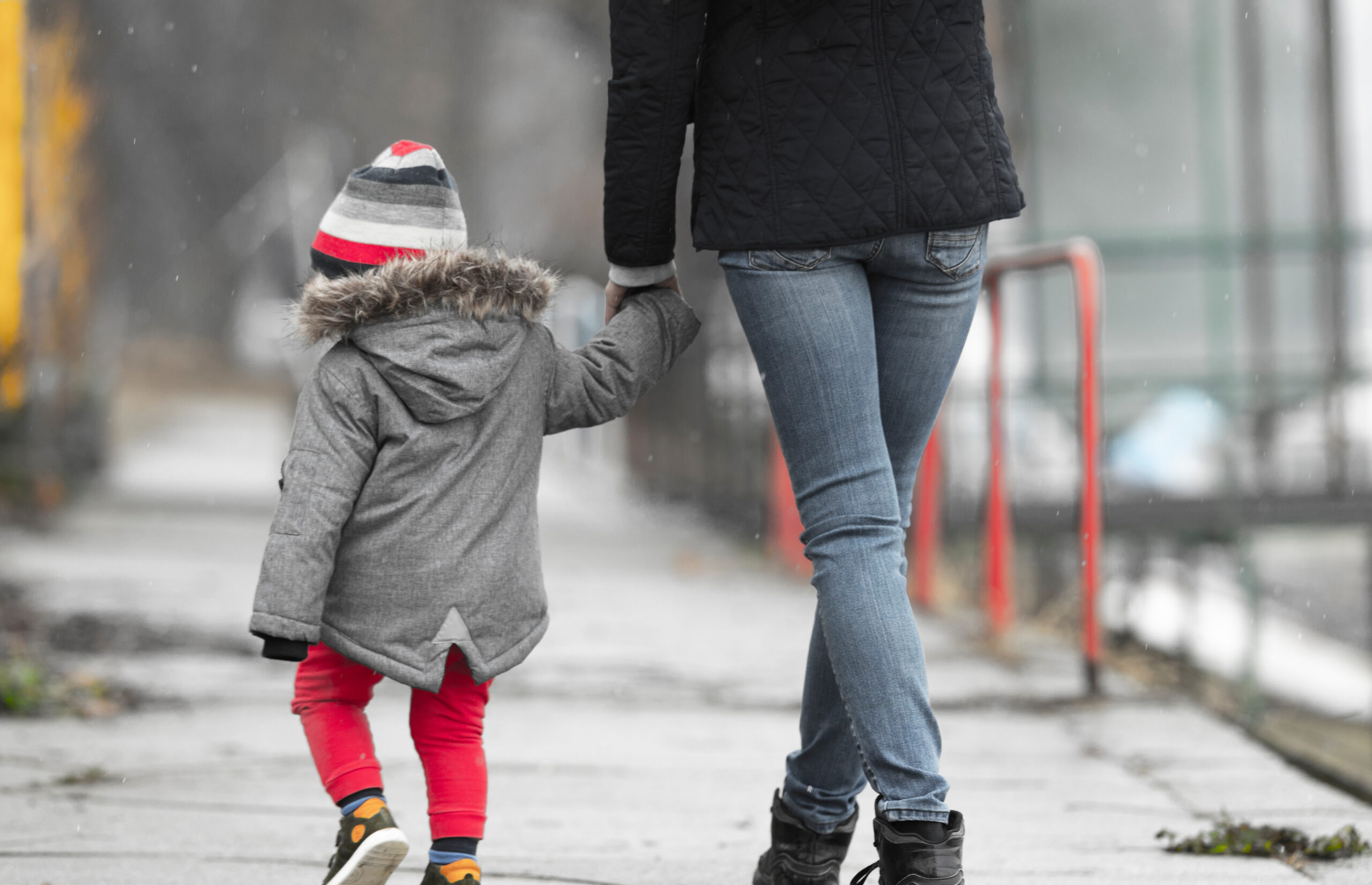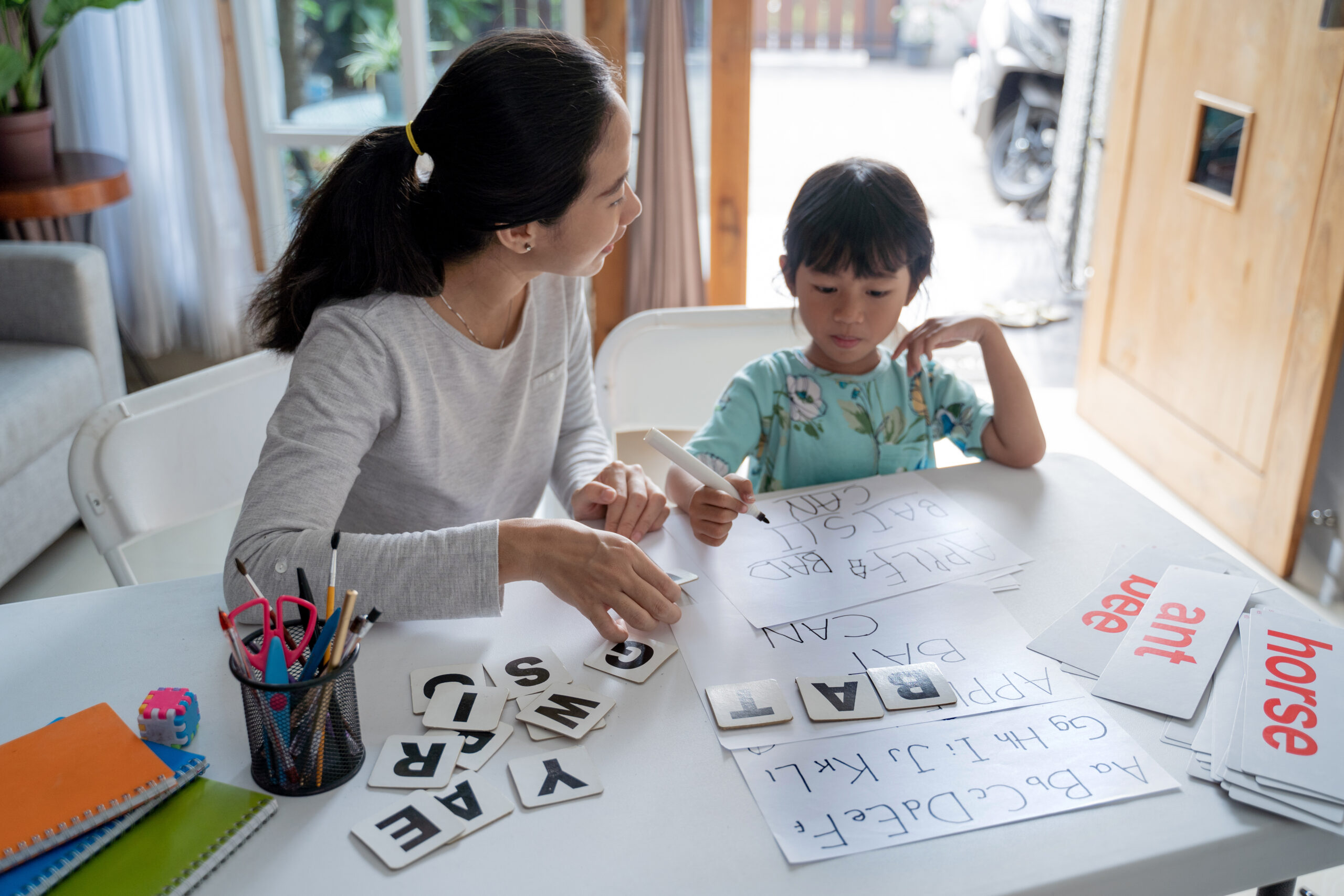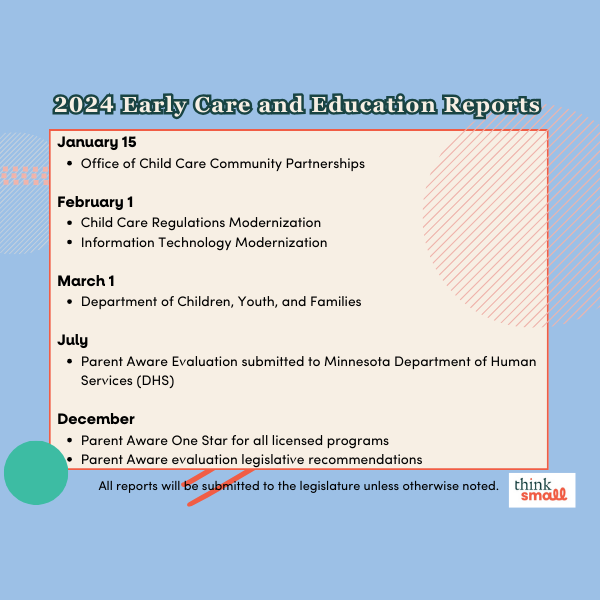By Marie Huey, Public Policy and Advocacy Coordinator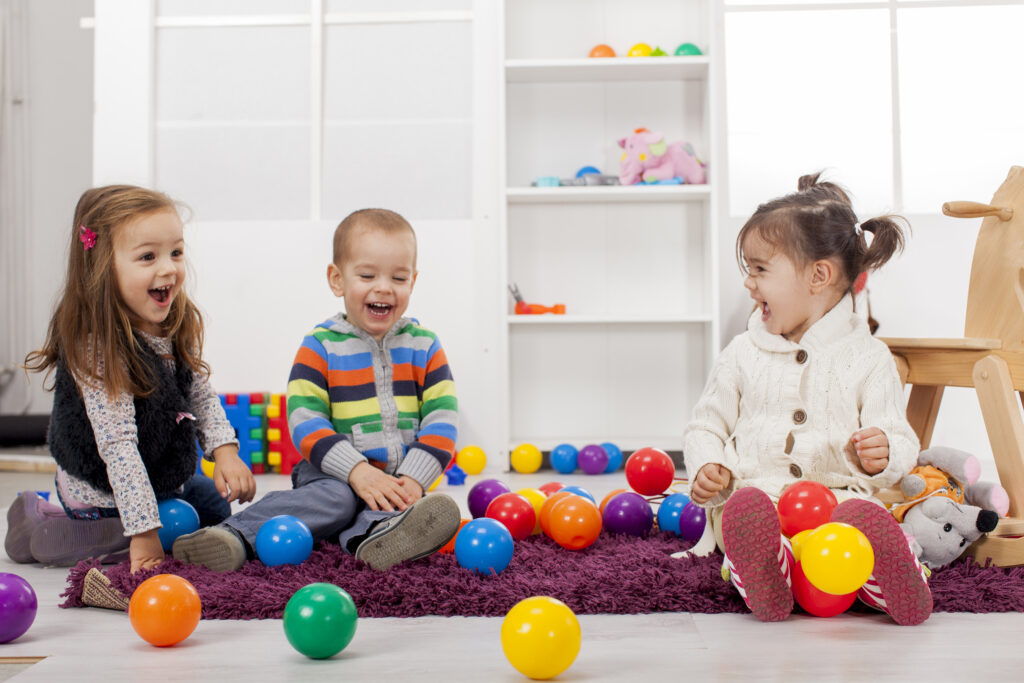 The November Ann Kaner-Roth Policy Hour focused on play, parents and policy.One of the presenters was Katy Smith, a Parent Educator who spent 31 years working in Winona. She was named Minnesota Teach of the Year in 2011. For the past six years she has been working with others to reclaim play time for young children in school, child care, and at home. At conferences and events around the state, she talked with several administrators and practitioners who reported scaling back on play. The glitter and Play-doh are too messy, they said. It is wasted time the children could be using to learn and prepare for kindergarten. Many teachers want to incorporate more play, but school standards and expectations don’t encourage it. Katy works with others to elevate the importance of play and look for ways to incorporate it back into children’s lives.
The November Ann Kaner-Roth Policy Hour focused on play, parents and policy.One of the presenters was Katy Smith, a Parent Educator who spent 31 years working in Winona. She was named Minnesota Teach of the Year in 2011. For the past six years she has been working with others to reclaim play time for young children in school, child care, and at home. At conferences and events around the state, she talked with several administrators and practitioners who reported scaling back on play. The glitter and Play-doh are too messy, they said. It is wasted time the children could be using to learn and prepare for kindergarten. Many teachers want to incorporate more play, but school standards and expectations don’t encourage it. Katy works with others to elevate the importance of play and look for ways to incorporate it back into children’s lives.
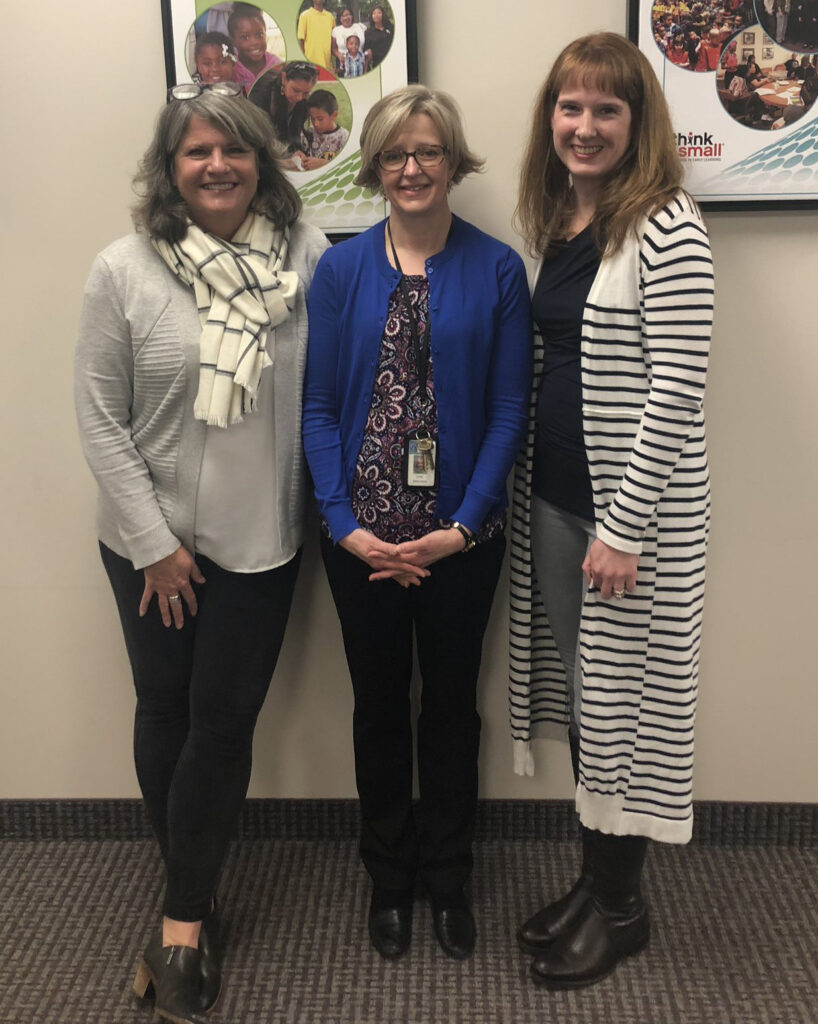
Policy Hour presenters were Katy Smith, Parent Educator, Dr. Lori Erickson, Assistant Director of the Saint Paul Public Schools’ Office of Learning, and Heather Starks, President of the MN Parent Teacher Association.
Heather Starks, President of the Minnesota Parent Teacher Association, shared her journey and experiences as a parent. When her children were born, she started ECFE and really enjoyed the experience. Her first two children loved going to preschool. Her youngest, however, struggled in Pre-K because it had become more academic and less play-based by the time he started attending. Play helps children be successful in their learning and build self-confidence.What contributed to an environment that discourages play and emphasizes academics?Smith believes it is a combination of factors. The No Child Left Behind Act moved rigor down to lower grades. All-day Kindergarten, which passed in Minnesota in 2013, was a great idea. However, in its implementation it often looks a lot like other grades, with too much desk time and not enough play. Curriculum that focuses on letters, numbers, and “readiness,” along with a lack of support for administrators about what early childhood education should look like also contribute to the current state. A very competitive parenting culture, where kids are enrolled in many enrichment opportunities can also be harmful. Another challenge is that the early childhood workforce is very diverse. Providers come from a variety of cultural and educational backgrounds, and there is no central system where everyone is accountable for the same standards and practices. Other factors likely contribute to the current situation, and the incorporation of play varies greatly.
What is already being done to incorporate more play, and what else can people do?Dr. Lori Erickson, Assistant Director of the Saint Paul Public Schools’ Office of Learning, spoke about the success that Pre-Kindergarten programs in her district are having with incorporating play. Students spend significant time in active learning, which is play that aligns with academic standards. There are active learning centers for reading, writing, math, science, social studies, and art. Teachers wrote the curriculum.Kindergarten teachers are also using this active learning model. The first six weeks of both Pre-K and Kindergarten focus on social-emotional support and learning. Erickson manages seven different funding streams which all have different program requirements. The data that SPPS collects about how children are doing shows that they are meeting the expectations, and the active learning model is working.
The American Association of Pediatrics published a report earlier this year that acknowledges the important role of play in promoting social-emotional, cognitive, language, and self-regulation skills in children.Smith believes that children have a right to play, and Minnesota could push this further by adopting play standards. While the Early Childhood Indicators of Progress address many aspects of play, calling it out specifically and separately would be a powerful statement.All of the presenters agreed that the lack of play is partly due to misinformation. Parents and practitioners don’t realize that play is learning, and many of them see it as wasted time. By talking to others and educating parents about the importance of play, early childhood professionals can reclaim play as central to children’s development.
 The November Ann Kaner-Roth Policy Hour focused on play, parents and policy.One of the presenters was Katy Smith, a Parent Educator who spent 31 years working in Winona. She was named Minnesota Teach of the Year in 2011. For the past six years she has been working with others to reclaim play time for young children in school, child care, and at home. At conferences and events around the state, she talked with several administrators and practitioners who reported scaling back on play. The glitter and Play-doh are too messy, they said. It is wasted time the children could be using to learn and prepare for kindergarten. Many teachers want to incorporate more play, but school standards and expectations don’t encourage it. Katy works with others to elevate the importance of play and look for ways to incorporate it back into children’s lives.
The November Ann Kaner-Roth Policy Hour focused on play, parents and policy.One of the presenters was Katy Smith, a Parent Educator who spent 31 years working in Winona. She was named Minnesota Teach of the Year in 2011. For the past six years she has been working with others to reclaim play time for young children in school, child care, and at home. At conferences and events around the state, she talked with several administrators and practitioners who reported scaling back on play. The glitter and Play-doh are too messy, they said. It is wasted time the children could be using to learn and prepare for kindergarten. Many teachers want to incorporate more play, but school standards and expectations don’t encourage it. Katy works with others to elevate the importance of play and look for ways to incorporate it back into children’s lives.

